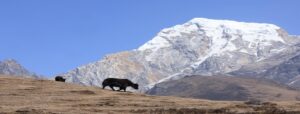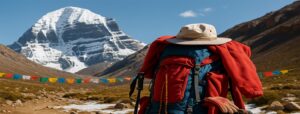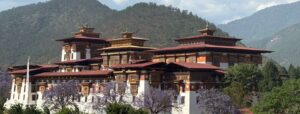Welcome, fellow adventurers, to a realm of unparalleled beauty and untamed wilderness, Chitwan National Park. Positioned in the heart of Nepal, this extraordinary sanctuary boasts an enchanting mix of dense forests, diverse wildlife, and captivating cultural heritage.
Join me on an exhilarating journey as we explore the secrets, wonders, and unforgettable experiences that await within the realm of Chitwan National Park.
Facts of Chitwan National Park
- Chitwan National Park is located in southern Nepal and covers an area of 952.6 square kilometers.
- It was established in 1973 and was declared a UNESCO World Heritage Site in 1984.
- Chitwan National Park is one of the most popular tourist destinations in Nepal, attracting visitors from around the world.
- The park is known for its rich biodiversity, housing over 700 species of wildlife, including the endangered Bengal tiger, one–horned rhinoceros, and Asian elephant.
- Chitwan National Park is home to 525 species of birds, making it a paradise for birdwatchers.
- The park has diverse ecosystems including riverine forests, grasslands, and wetlands.
- Chitwan National Park is famous for its successful conservation efforts, particularly in saving the one-horned rhinoceros from the brink of extinction.
- It offers various activities for visitors such as jeep safaris, elephant safaris, canoeing, and nature walks.
- The park is located in the Terai region of Nepal which is known for its subtropical climate and lush vegetation.
- Chitwan National Park is home to several endangered species including the gharial which is a critically endangered crocodile species.
- The park is a stronghold for the Royal Bengal tiger with an estimated population of 128 individuals.
- Chitwan National Park offers opportunities for wildlife research and conservation projects attracting scientists and researchers worldwide.
- The park’s rivers such as the Rapti and Narayani are home to several species of freshwater dolphins and turtles.
- Chitwan National Park has a network of watchtowers and hides providing visitors with excellent vantage points to observe wildlife.
- The park is a habitat for several species of snakes including the king cobra, Indian python, and banded krait.
- Chitwan National Park offers a unique cultural experience with its Tharu cultural shows, where visitors can witness traditional dances and music.
Things to do in Chitwan National Park
Let’s take a look into the top things to do in Chitwan National Park showcasing the thrilling adventures that await.
Wildlife Safari
Embark on a wildlife safari and venture deep into the heart of Chitwan National Park. Hop aboard a jeep or an elephant, accompanied by expert guides, and explore the diverse ecosystems that are home to rare and endangered species.
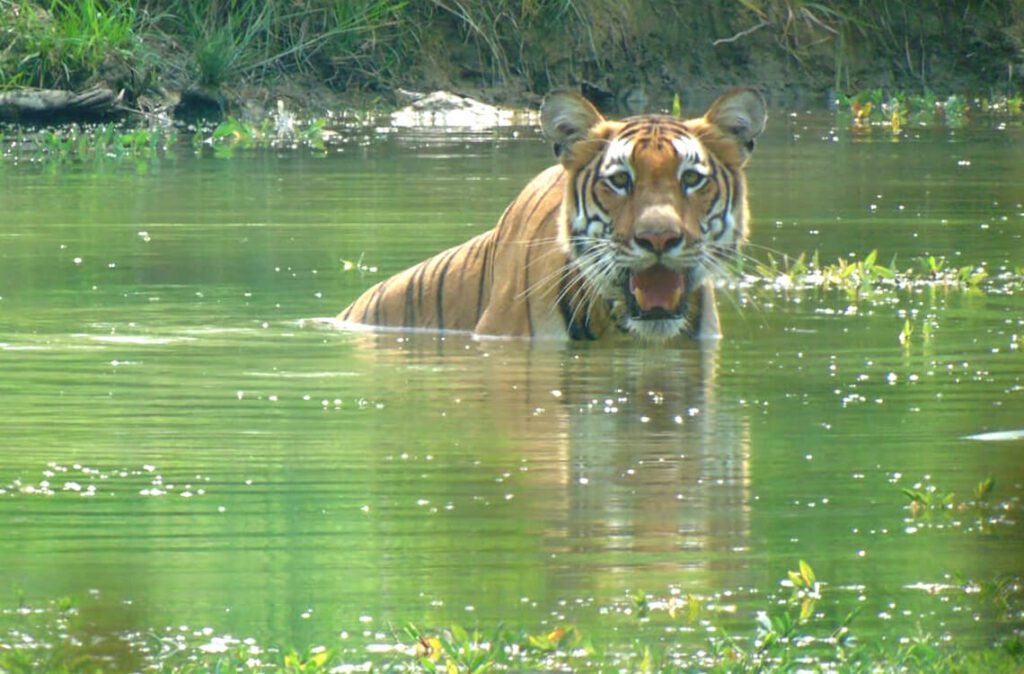
From spotting the elusive Royal Bengal tiger and the one–horned rhinoceros to witnessing the playful antics of wild elephants, every moment on safari is filled with excitement and awe.
Birdwatching Extravaganza
Chitwan National Park is a paradise for birdwatchers, boasting over 500 species of birds. Grab your binoculars and set off on a birdwatching extravaganza as you explore the park’s lush forests, riverbanks, and wetlands.
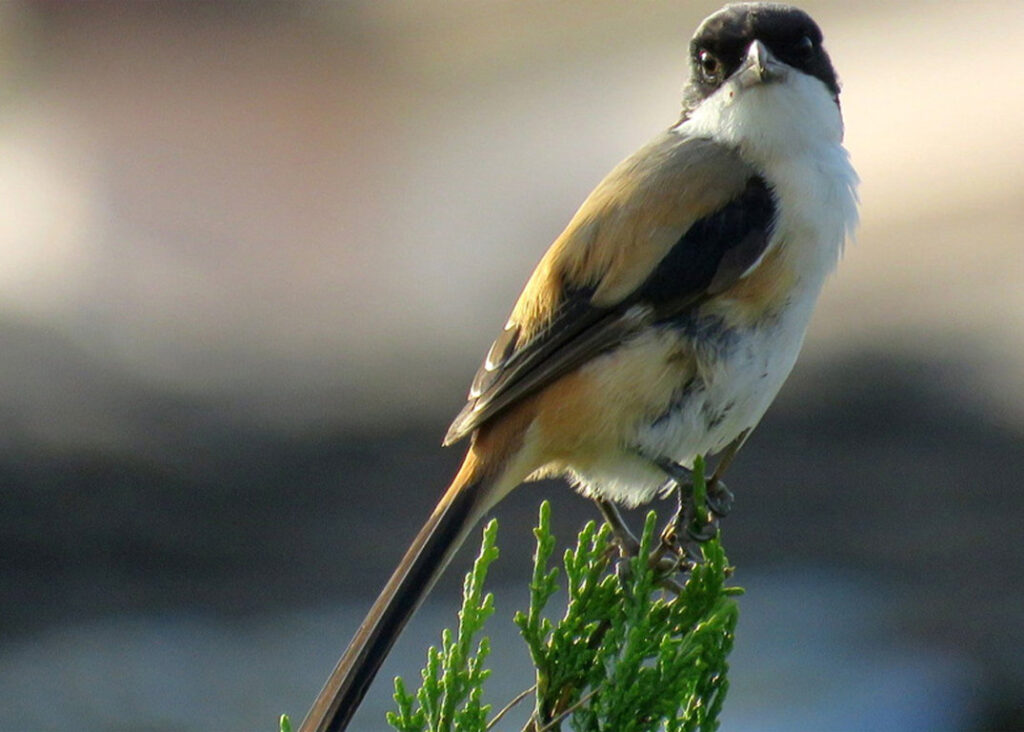
Catch sight of vibrant avian species like the Bengal florican, the great hornbill, and the white–throated kingfisher, among others, as they grace the skies with their vibrant plumage.
Canyoning Adventure
Navigate the tranquil waters of the Rapti or Narayani River on a traditional dugout canoe and immerse yourself in the serenity of Chitwan National Park. Glide along the riverbanks, listening to the soothing sounds of nature and keeping an eye out for wildlife.
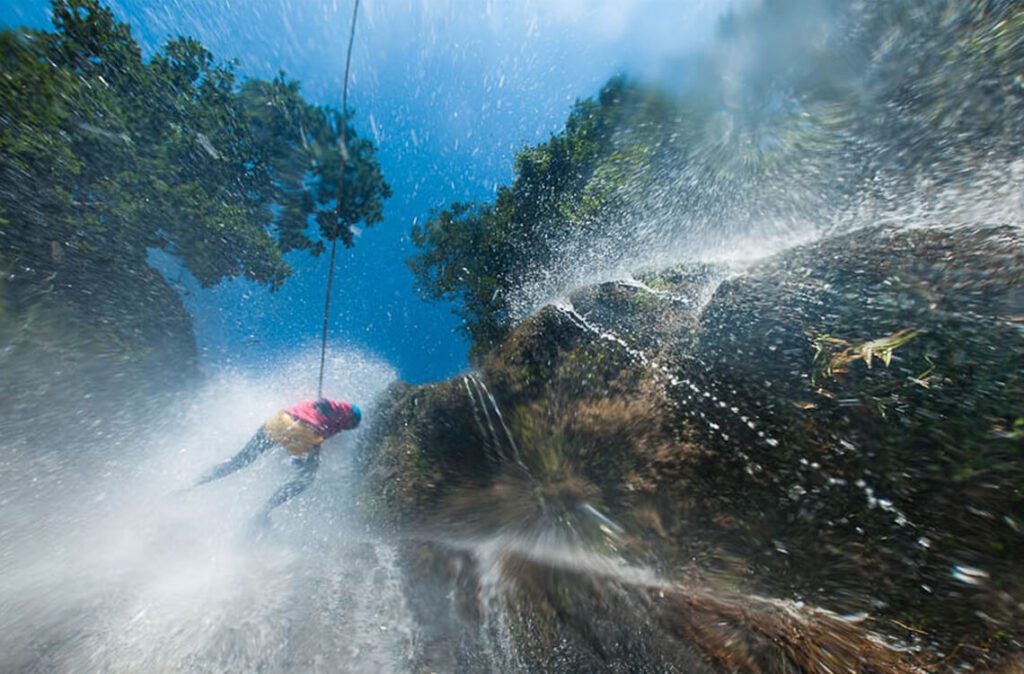
Spot marsh muggers, gharials, and various bird species as you enjoy a peaceful and scenic journey.
Tharu Village Tour
Discover the rich cultural heritage of the Tharu people, the indigenous inhabitants of the region. Embark on a Tharu village tour and delve into their unique traditions, customs, and lifestyle. Engage with the locals, witness traditional dance performances, and explore their architectural marvels.
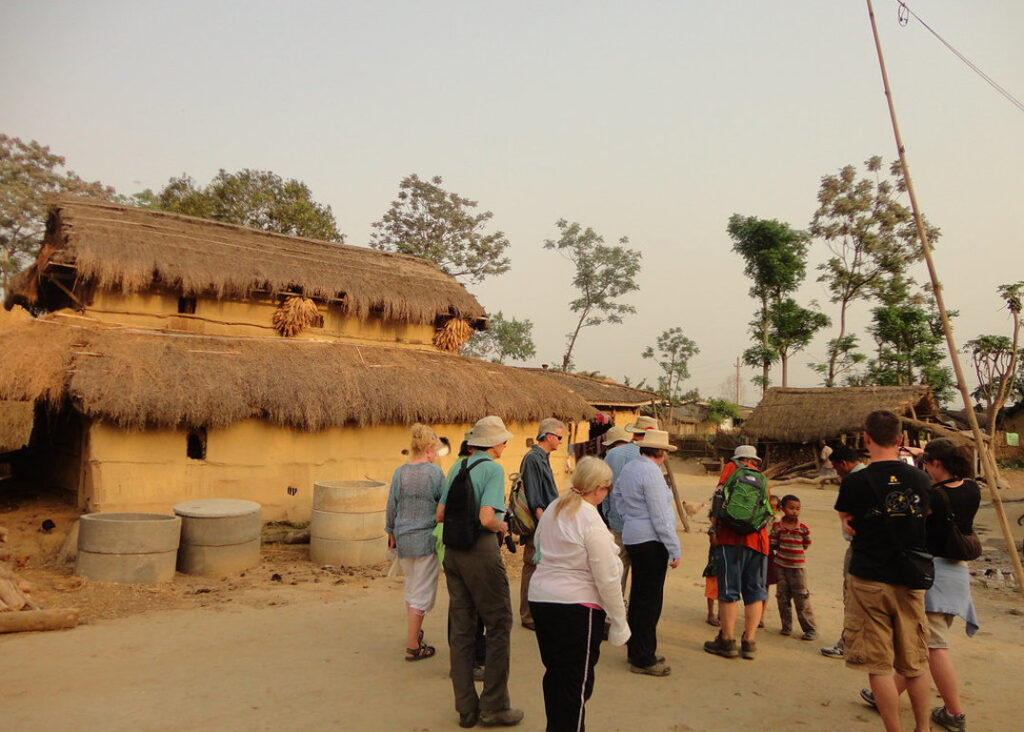
Immerse yourself in the warmth of their hospitality and gain a deeper understanding of the harmonious relationship between the Tharu community and the natural world.
Elephant Breeding Center Visit
Pay a visit to the Elephant Breeding Center within the park and witness the conservation efforts dedicated to protecting the endangered Asian elephants. Observe the playful baby elephants as they roam around under the watchful eyes of their caretakers.
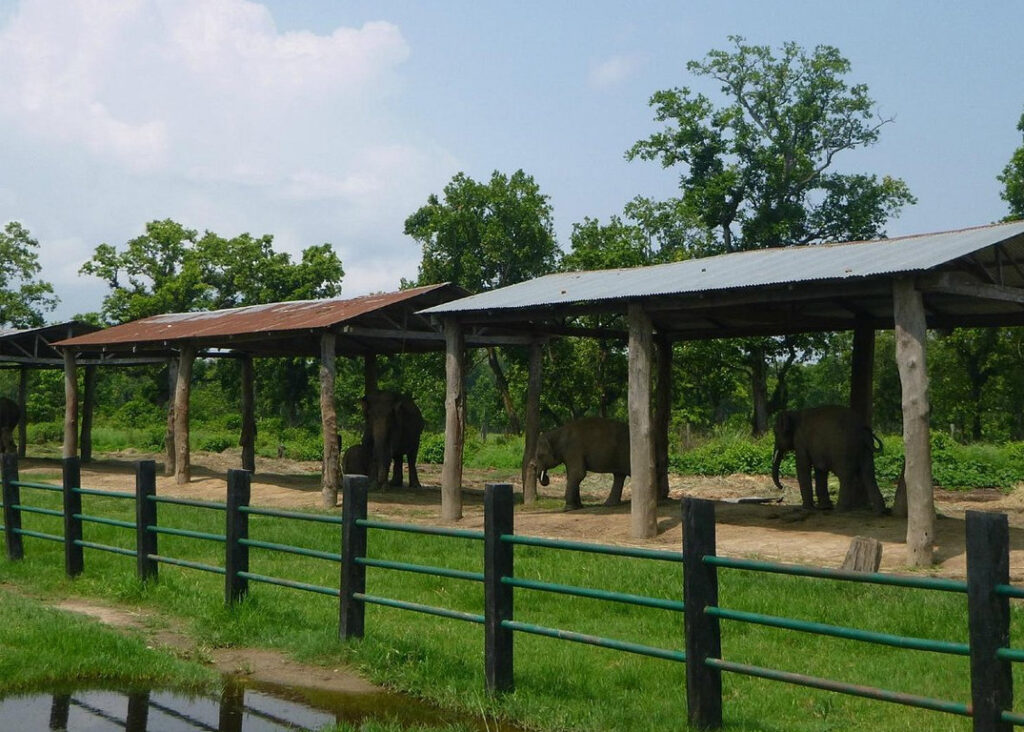
Learn about the center’s conservation initiatives and the importance of safeguarding these gentle giants for future generations.
Jungle Walks and Hiking
Embark on a thrilling jungle walk or hiking adventure, accompanied by experienced guides who will unveil the hidden wonders of Chitwan National Park.
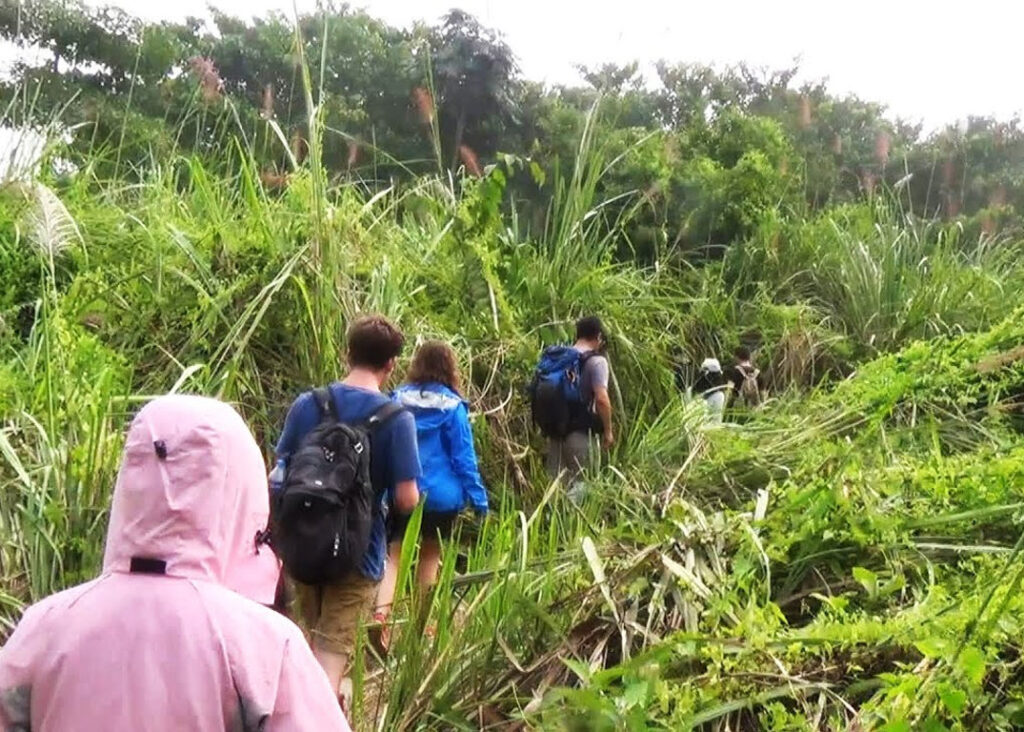
Trek through dense forests, traverse grasslands and discover hidden waterholes. Learn about the diverse flora and fauna that thrive in the park and feel the thrill of being in the midst of the untamed wilderness.
Sunset Views and River Safari
Witness breathtaking sunsets over the vast landscapes of Chitwan National Park as you embark on a river safari. Drift along the river, capturing the golden hues of the setting sun and immersing yourself in the tranquil ambiance. Marvel at the natural beauty surrounding you and cherish the moments of serenity.
Also Read: Best Things to Do in Bardiya National Park: Exploring the Enchanting Wilderness
Accommodation
Let’s explore the unique and memorable accommodations that await you in this enchanting corner of the world.
Eco-Lodges: Immersed in Nature’s Embrace
For those seeking an authentic and eco-friendly experience, Chitwan National Park offers a range of thoughtfully designed eco-lodges. These accommodations blend seamlessly with the natural surroundings, allowing guests to feel at one with nature. From the use of sustainable materials to innovative energy solutions, eco-lodges exemplify harmony between comfort and environmental consciousness.
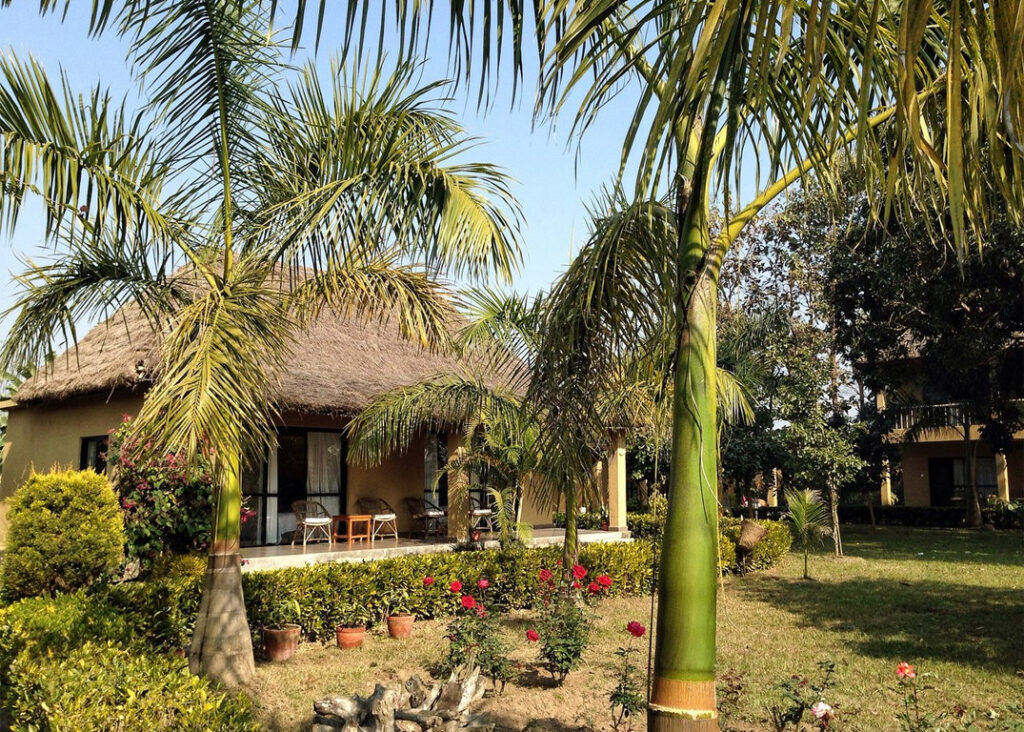
Imagine waking up to the harmonious sounds of birds chirping and the scent of fresh foliage wafting through your window. Eco-lodges provide a tranquil escape where you can relax and rejuvenate while embracing the wonders of Chitwan.
Jungle Resorts: Luxury Amidst the Wild
If your heart yearns for a touch of luxury amid the wilderness, Chitwan’s jungle resorts are sure to enchant you. These resorts offer a remarkable fusion of opulence and natural beauty, providing guests with lavish amenities and impeccable service.
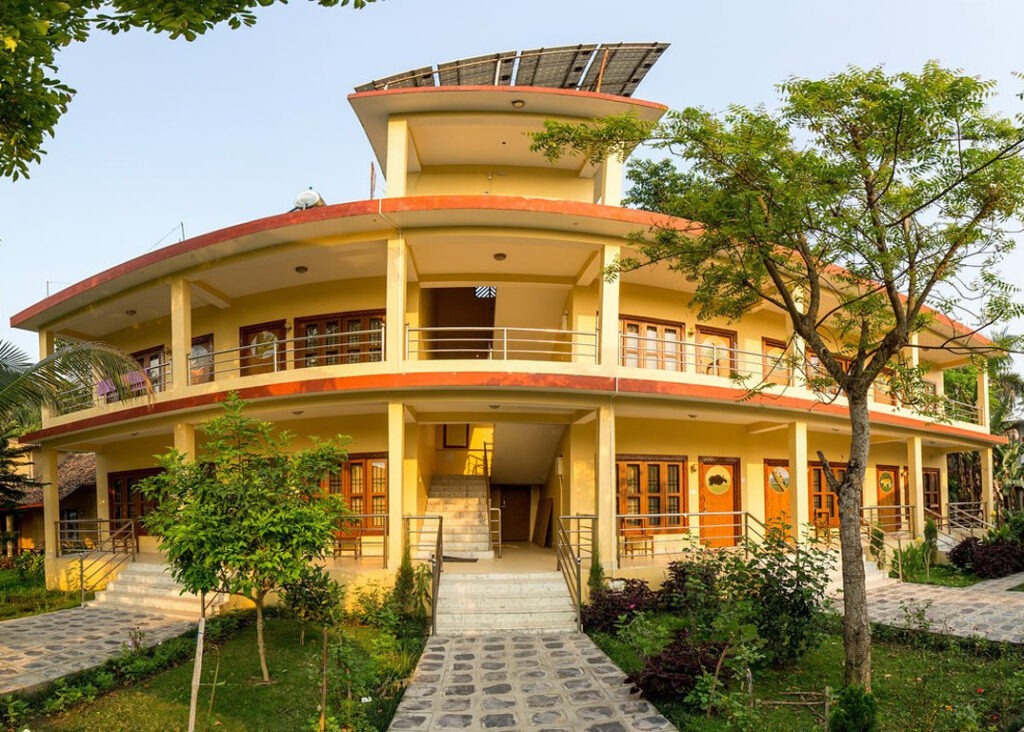
Picture yourself lounging by a sparkling pool, surrounded by lush greenery, after an exhilarating day of jungle safaris and wildlife encounters. Many jungle resorts also organize guided tours, ensuring you have the opportunity to witness Chitwan’s breathtaking wildlife up close while enjoying the comfort of your refined abode.
Tharu Homestays: Authentic Cultural Immersion
Chitwan is not just a wildlife haven; it is also home to the indigenous Tharu community, renowned for its rich cultural heritage. To delve deep into their vibrant traditions and way of life, consider opting for a Tharu homestay. These homestays offer a unique opportunity to experience the warmth and hospitality of the locals while gaining insights into their customs, music, dance, and cuisine.
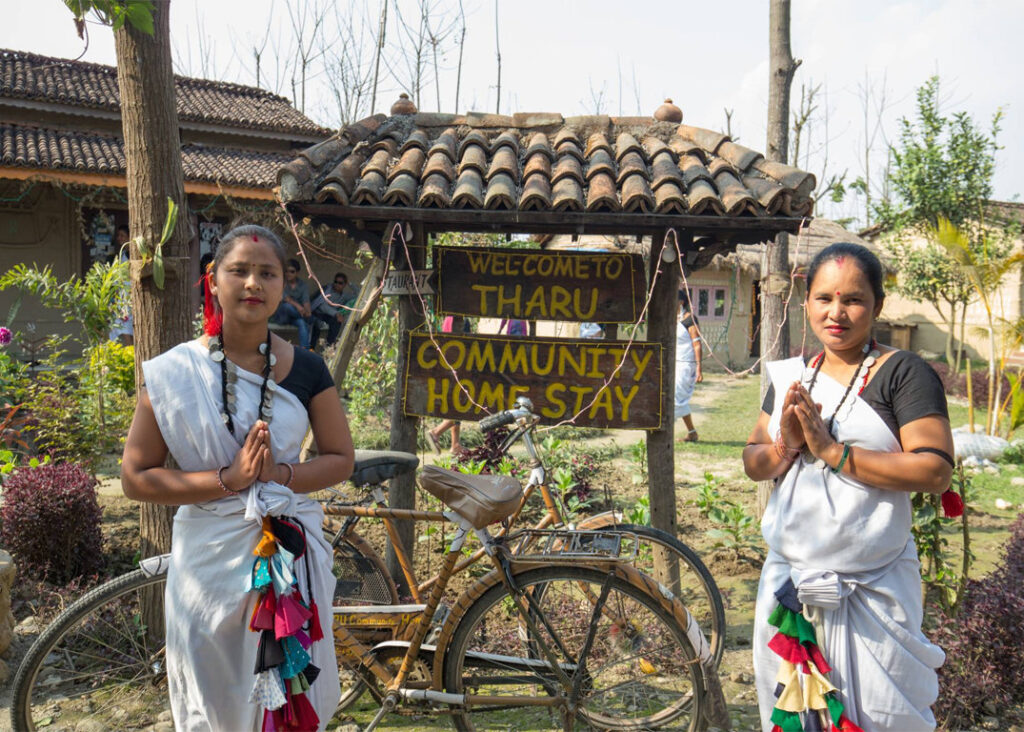
You’ll have the chance to participate in traditional activities like bullock cart rides, oxen plowing, and pottery making. A Tharu homestay provides an authentic glimpse into the lives of the people who have coexisted harmoniously with Chitwan’s natural wonders for generations.
Riverside Cabins: Serenity by the Water’s Edge
As the Rapti and Narayani rivers wind their way through Chitwan National Park, they create a serene and picturesque backdrop for accommodation. Riverside cabins offer an idyllic retreat where you can unwind while admiring the tranquil waters and relishing the soothing symphony of nature.
You may also like: Top 10 Bird Watching Places in Nepal
These cabins provide a perfect balance between comfort and rustic charm, allowing you to connect with nature in an intimate and peaceful setting. From your riverside abode, you may catch glimpses of exotic birds, grazing deer, or even elephants cooling off in the distance, adding an extra touch of magic to your stay.
Cost
Let’s take a look into the costs associated with visiting Chitwan National Park including the entrance ticket price, to help you plan your journey and make the most of this extraordinary destination.
Entrance Ticket Price
To embark on your adventure in Chitwan National Park, you will need to purchase an entrance ticket. The entrance fee for foreign nationals is set at NPR 2,000 per person per day. For SAARC nationals, the fee is NPR 1,000, and for Nepali citizens, it is NPR 150.
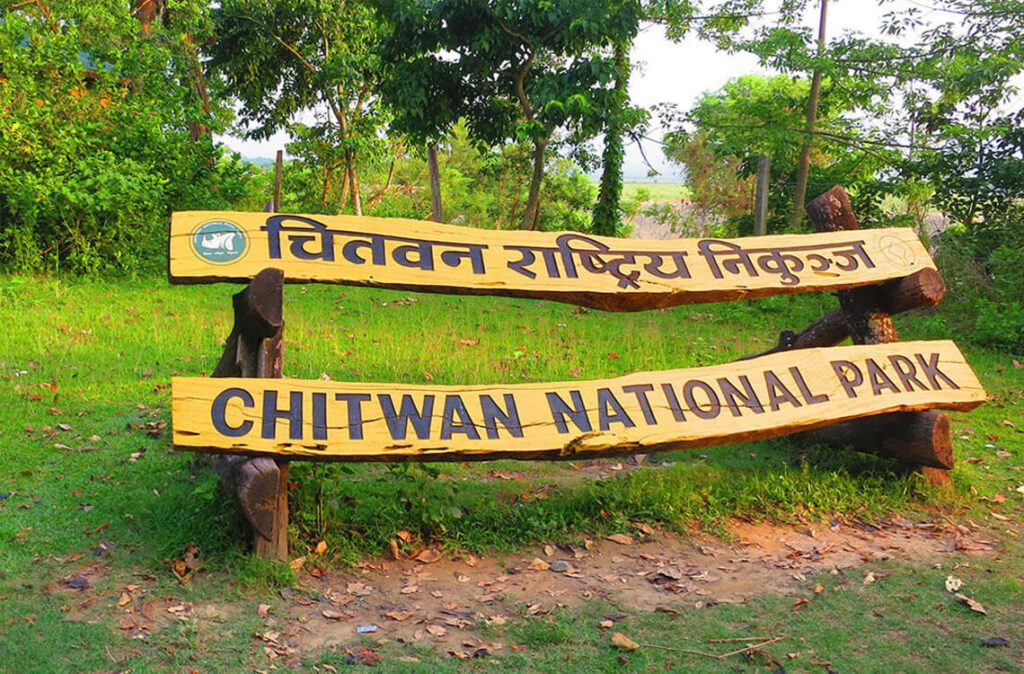
However, please note that these prices are subject to change, so it is advisable to check for the latest rates before planning your visit.
Accommodation and Safari Costs
Apart from the entrance ticket and park permit, you will also need to consider accommodation and safari costs when visiting Chitwan National Park. The park offers various accommodation options, including lodges, resorts, and guesthouses, catering to different budgets and preferences. The prices for accommodation can range from budget-friendly to more luxurious options depending on the facilities and services provided.

To truly experience the wonders of Chitwan National Park, embarking on a safari is a must. Safaris offer the opportunity to spot wildlife up close and personal, including the rare Bengal tiger, one-horned rhinoceros, elephants, and an abundance of bird species. Safari costs can vary depending on the duration and type of safari chosen, such as jeep safaris, canoe safaris, or guided nature walks. It is advisable to check with your chosen accommodation provider or tour operator for safari package prices and availability.
Additional Costs and Tips
While exploring Chitwan National Park, there may be additional costs to consider. These may include transportation to and from the park, hiring a guide or naturalist for a more insightful experience, meals, and any optional activities or services offered by your accommodation provider.
Why was Chitwan National Park included in UNESCO World Heritage Site?
Here are some of the key factors that contributed to its recognition:
Biodiversity
Chitwan National Park is renowned for its exceptional biodiversity. The park is home to a wide array of plant and animal species including rare and endangered ones. It provides a habitat for iconic wildlife such as the one–horned rhinoceros, Bengal tigers, Asian elephants, and numerous bird species.
Conservation Efforts
Chitwan National Park has been at the forefront of conservation efforts in Nepal. It has played a crucial role in protecting and preserving endangered species, particularly the one-horned rhinoceros. The park has successfully implemented anti-poaching measures and wildlife management strategies to safeguard its valuable fauna.

Ecosystem Importance
The park encompasses diverse ecosystems including riverine forests, grasslands, wetlands, and rivers. These ecosystems are not only critical for the survival of numerous plant and animal species but also contribute to the overall ecological balance of the region.
Cultural Significance
Chitwan National Park also holds cultural importance. It is home to indigenous communities such as the Tharu people who have a deep connection with the land and its natural resources. Their traditional knowledge and sustainable practices contribute to the park’s conservation efforts.
Touristic Value
The park attracts a significant number of visitors each year, both domestic and international. Its unique biodiversity, picturesque landscapes, and opportunities for wildlife viewing including elephant safaris and jungle walks, make it a popular tourist destination. The recognition as a UNESCO World Heritage Site helps promote sustainable tourism and raises global awareness about the park’s value.
Best time to visit
Let’s take a look into the seasonal secrets of this stunning region which helps you to uncover the perfect time to explore.
Spring: Awaken with Nature’s Symphony
As winter recedes and the temperatures begin to rise, Chitwan National Park awakens in a breathtaking symphony of colors and sounds during spring. From March to May, the park is adorned with vibrant blossoms, lush foliage, and the mesmerizing chorus of countless birds.
More: Places to Visit in Nepal for Couples
Embark on guided nature walks through the park’s trails, witness exotic migratory birds in full glory, and witness the iconic Bengal tigers prowling through the dense undergrowth.
Monsoon: A Rainforest Adventure
From June to September, the monsoon transforms Chitwan National Park into a lush wonderland. Some activities may be limited, but adventurous travelers can witness vibrant nature, with rhinos, animal calls, and mighty rivers.
Autumn: A Balance of Serenity and Thrills
For those seeking a harmonious blend of pleasant weather and thrilling encounters, autumn (October to November) is an ideal time to visit Chitwan National Park. The monsoon recedes, leaving behind a revitalized landscape and a cornucopia of wildlife.
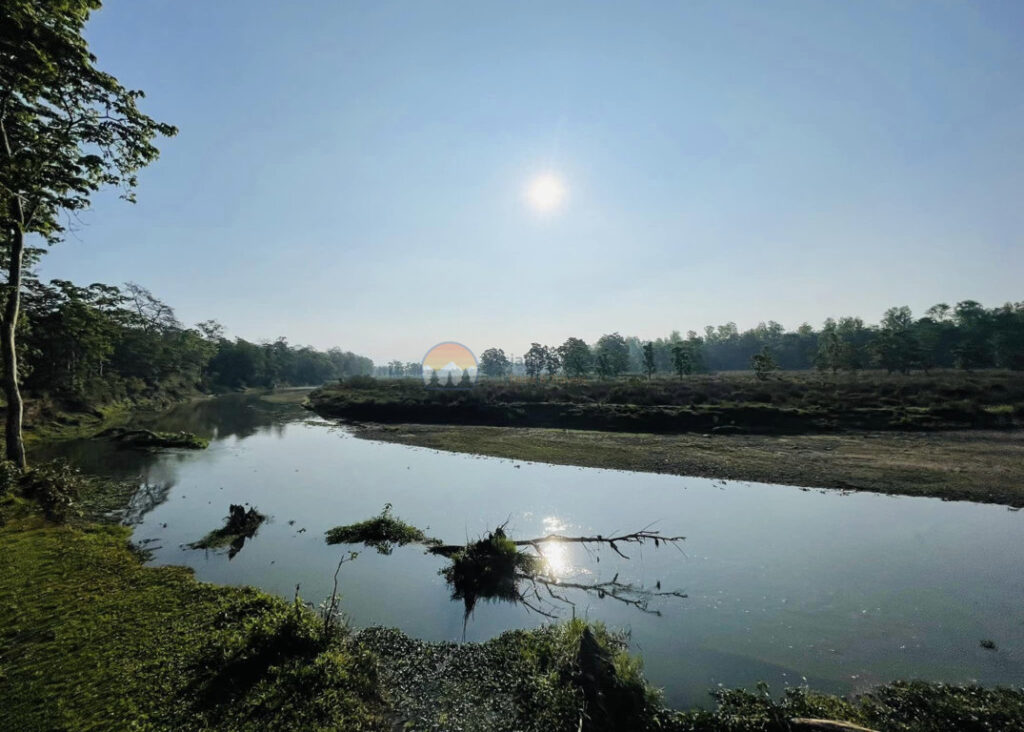
The skies are clear, providing awe-inspiring views of the surrounding mountains, and temperatures are mild, making wildlife safaris and elephant rides a delightful experience. Witness the rare one-horned rhinos in their natural habitat, catch glimpses of elusive leopards, and be captivated by the majestic grace of Asian elephants.
Winter: A Tranquil Escape
From December to February, Chitwan National Park offers ideal conditions for exploring its diverse flora and fauna. With cooler temperatures and drier weather, wildlife spotting is easier, and migratory birds flock to the park’s water bodies. You can enjoy a canoe ride along the meandering rivers, observe graceful deer in the open grasslands, and encounter fascinating reptiles basking in the winter sun.
Kathmnadu to Chitwan National Park
Chitwan National Park is located in southwestern Nepal and is approximately 170 kilometers away from Kathmandu. Here are a few common ways to reach Chitwan National Park:
By Road
Bus
The most common and economical option is to take a bus from Kathmandu to Chitwan. Several public and private bus services operate between the two destinations. The journey usually takes around 5 to 6 hours, depending on the traffic and road conditions.
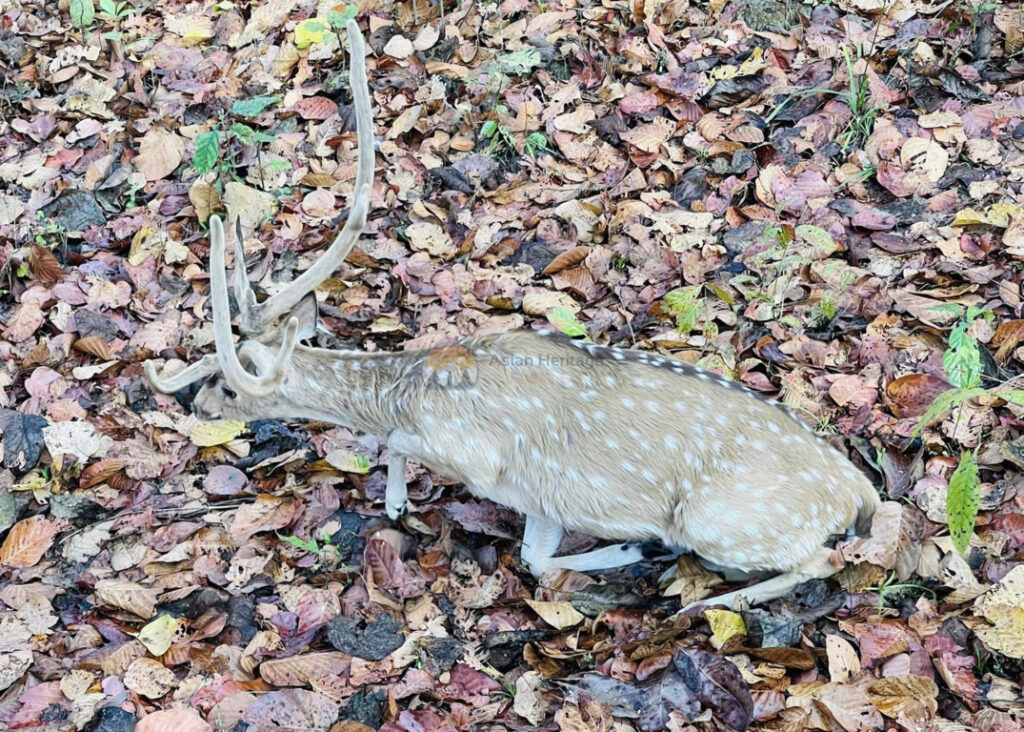
Private Car/Taxi
You can also hire a private car or taxi for a more comfortable and convenient journey. The travel time by car is similar to that of a bus but you have the flexibility to make stops along the way.
By Air
Flight
The quickest way to reach Chitwan National Park is by taking a domestic flight from Kathmandu to Bharatpur Airport, which is located near the park.
More: Best Seasons and Months to Trek in Nepal
The flight duration is around 20-25 minutes. From the airport, you can arrange a taxi or a hotel pick-up to reach your accommodation within the park.
Chitwan National Park to Pokhara
Here are the most common ways to make this journey:
By Road
The most convenient and popular method to reach Pokhara from Chitwan National Park is by road. The distance between the two destinations is approximately 150 kilometers and the journey takes around 4 to 5 hours depending on the traffic and road conditions.
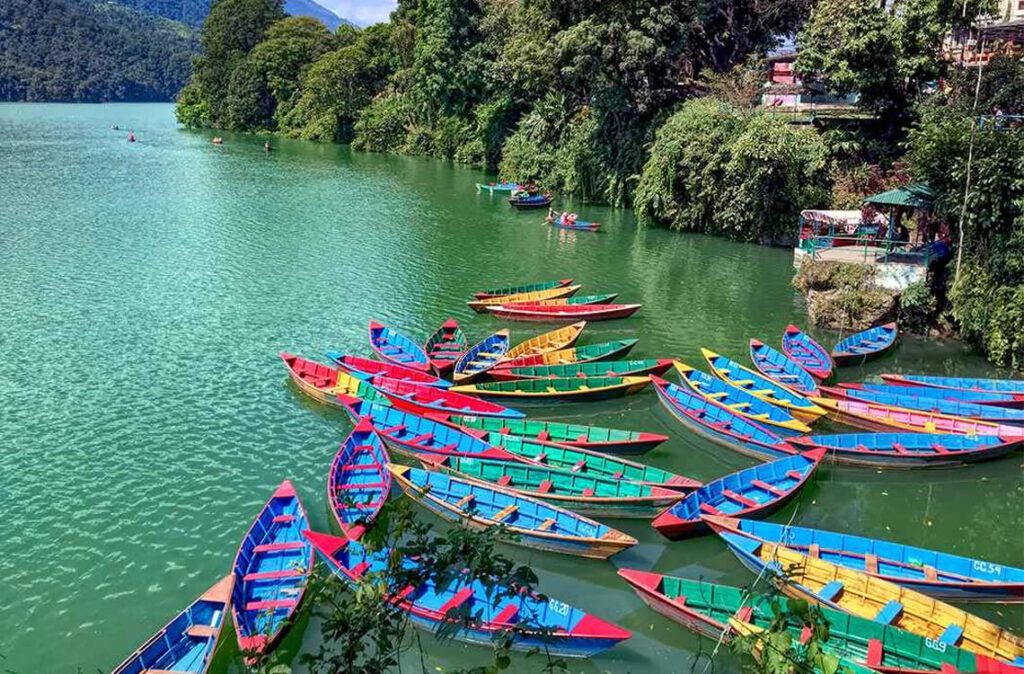
Private Vehicle
Hiring a taxi or a private car is the most comfortable and flexible option. You can negotiate the fare with the driver or arrange for a car through your hotel or a local travel agency.
Bus
Regular bus services operate between Chitwan and Pokhara. You can catch a bus from the bus station in Sauraha which is near Chitwan National Park. The journey by bus is relatively affordable, but it may be crowded, and the level of comfort can vary.
By Air
If you prefer a quicker mode of transportation, you can opt for a domestic flight from Bharatpur Airport (located near Chitwan) to Pokhara Airport. Several airlines offer flights between these two cities, and the flight duration is approximately 20 to 30 minutes. However, keep in mind that flight schedules and availability may vary, so it’s advisable to check with the airlines in advance.
Chitwan National Park to Lumbini
You have transportation options available to travel from Chitwan National Park to Lumbini, the birthplace of Lord Buddha in Nepal.
Here are some common ways to make the journey:
Private Vehicle
The most convenient way to travel from Chitwan National Park to Lumbini is by private vehicle. You can hire a taxi or rent a car to make the approximately 184-kilometer journey. The route usually takes around 4-5 hours, depending on road conditions and traffic. The advantage of a private vehicle is that you have the flexibility to stop at various points.
Bus
Regular bus services operate between Chitwan and Lumbini. You can take a local bus from Chitwan National Park to the nearest major town, Bharatpur. From Bharatpur, you can catch a bus to Lumbini. The journey by bus typically takes around 6-7 hours, depending on the route and traffic conditions. Buses in Nepal can be crowded, so it’s advisable to book a ticket in advance or arrive early to secure a seat.
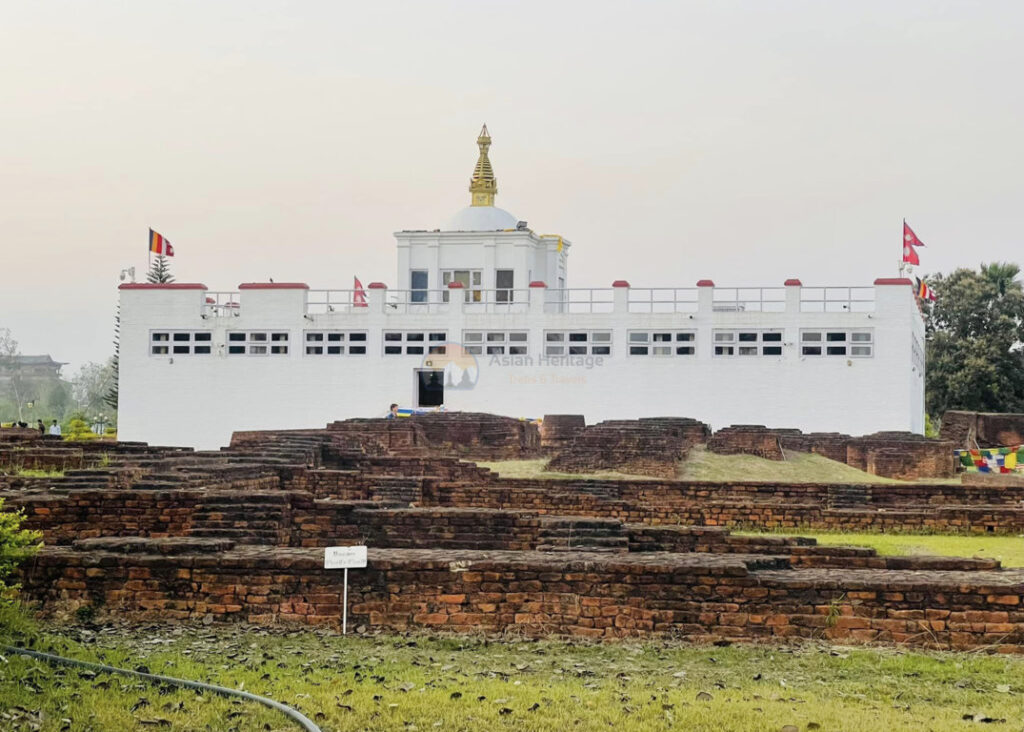
Shared Jeep
Shared jeeps are a popular mode of transportation in Nepal. You can find shared jeeps at various bus parks or taxi stands in Chitwan. These jeeps usually depart when they are full, so the departure time may not be fixed. The journey by shared jeep takes 4-5 hours, similar to a private vehicle, but you’ll be sharing with other passengers.
Domestic Flight
Although not a direct option, you can consider taking a domestic flight from Bharatpur Airport, located near Chitwan, to Gautam Buddha Airport in Bhairahawa, which is the nearest airport to Lumbini. The flight duration is around 25-30 minutes, followed by a short taxi or bus ride to Lumbini.
Let our expert team at Asian Heritage Treks and Travel take care of everything — from guided tours to personalized packing tips and travel arrangements.
Plan a fun adventure




